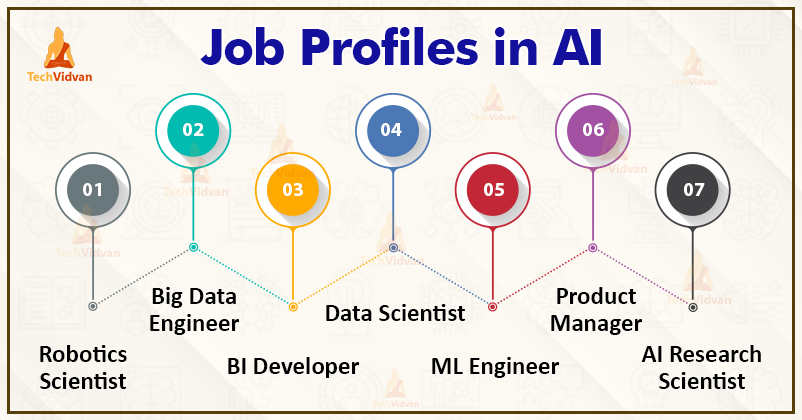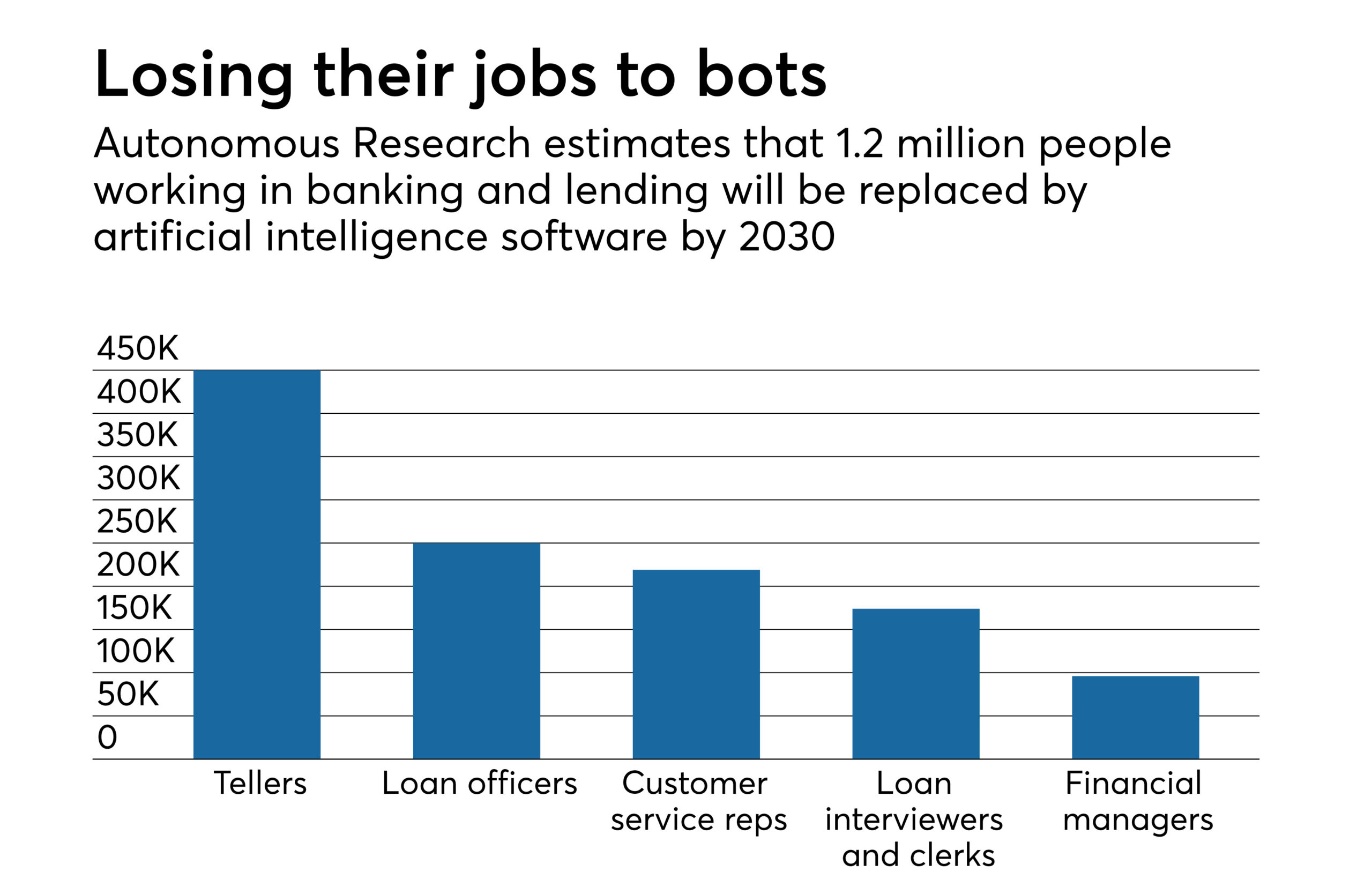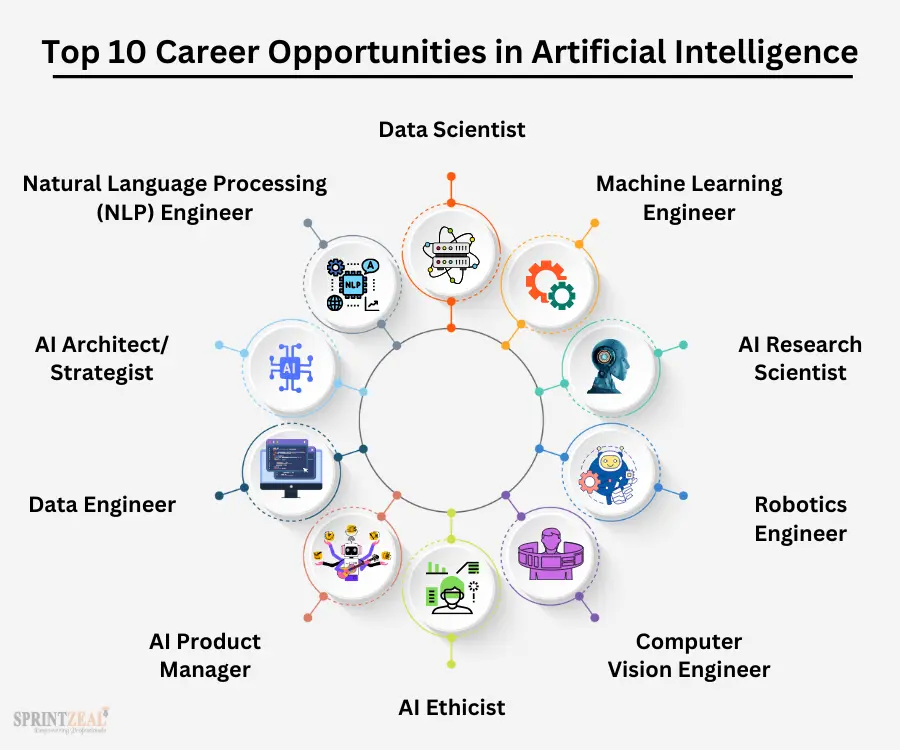Artificial intelligence (AI) is transforming the job market. New roles are emerging daily.
AI is changing how we work, creating exciting opportunities in various fields. From healthcare to finance, AI jobs are becoming more important. These jobs offer great potential for career growth and innovation. With the right skills, you can find a rewarding position in this fast-growing industry.
Understanding the types of AI jobs available can help you choose the right career path. Whether you are new to AI or looking to advance, there are many options to explore. This blog post will guide you through the world of AI jobs, highlighting key roles and what they involve. Get ready to dive into the future of work with artificial intelligence.

Credit: techvidvan.com
Ai Research Scientist
Artificial Intelligence (AI) has opened new career paths in the tech world. One of the most sought-after roles is the AI Research Scientist. These professionals push the boundaries of what AI can achieve. They work on creating new algorithms, improving existing systems, and solving complex problems.
Role Overview
An AI Research Scientist focuses on developing new AI models. They explore cutting-edge technologies and methods. Their work often involves deep learning, natural language processing, and robotics. They also collaborate with other scientists and engineers to implement their findings. This role is both challenging and rewarding. It requires a strong background in mathematics and computer science.
Skills Required
AI Research Scientists need a blend of technical and analytical skills. Proficiency in programming languages like Python and R is essential. They should understand machine learning frameworks like TensorFlow and PyTorch. Strong knowledge of statistics and probability is also crucial. Problem-solving skills and creativity are key. These scientists must stay updated with the latest research and developments in the field.
Career Path
Becoming an AI Research Scientist often starts with a solid educational background. Most professionals have a Ph.D. in computer science or a related field. Entry-level positions may include roles like data scientist or machine learning engineer. With experience, they can move up to senior research positions. Some may choose to work in academia, while others may join industry giants or startups. Continuous learning and research are vital for career growth in this field.

Credit: www.americanbanker.com
Machine Learning Engineer
A Machine Learning Engineer is a specialized role in the field of Artificial Intelligence. They focus on designing and implementing machine learning models. These models help computers learn from data and make predictions or decisions without explicit programming. This role is crucial in industries like healthcare, finance, and technology.
Daily Responsibilities
Machine Learning Engineers have a variety of daily tasks. Their work involves creating algorithms and data pipelines. They also spend time training and testing models. Here are some common responsibilities:
- Data Collection: Gathering and preparing datasets for analysis.
- Model Development: Designing and coding machine learning models.
- Model Training: Using data to teach models how to make predictions.
- Testing and Validation: Ensuring models work correctly and accurately.
- Optimization: Improving model performance and efficiency.
- Collaboration: Working with data scientists and other engineers.
Necessary Qualifications
Becoming a Machine Learning Engineer requires specific skills and education. Here are the key qualifications:
- Educational Background: A degree in Computer Science, Mathematics, or related field.
- Programming Skills: Proficiency in Python, R, or Java.
- Mathematics: Strong understanding of statistics and linear algebra.
- Machine Learning Libraries: Experience with TensorFlow, PyTorch, or Scikit-learn.
- Data Handling: Skills in data preprocessing and cleaning.
- Problem-Solving: Ability to tackle complex challenges.
Future Prospects
The future of Machine Learning Engineers looks promising. The demand for these professionals is growing. Here are some reasons why:
- Increasing Data: More data is being generated daily, needing analysis.
- AI Integration: More industries are adopting AI technologies.
- Innovation: Continuous advancements in AI and ML fields.
- Higher Salaries: Competitive compensation for skilled engineers.
In summary, becoming a Machine Learning Engineer offers a stable and rewarding career path. The role is essential in driving technological advancements.
Ai Product Manager
Artificial Intelligence (AI) is changing many industries. One key role in this change is the AI Product Manager. This job is crucial in guiding AI projects from idea to market. AI Product Managers bridge the gap between technical teams and business goals. They ensure AI products meet user needs and create value.
Job Functions
AI Product Managers have many responsibilities. They define the product vision and strategy. They work with stakeholders to set goals. They prioritize tasks for the development team. They also manage the product lifecycle. This includes planning, development, and launch. They gather feedback from users. They use this feedback to improve the product. They also monitor market trends. This helps them keep the product competitive.
Essential Skills
AI Product Managers need many skills. They need technical knowledge of AI and machine learning. They should understand data science. They need strong communication skills. They must explain technical details to non-technical stakeholders. They need project management skills. This helps them keep projects on track. They also need problem-solving skills. This helps them address issues quickly.
Industry Demand
The demand for AI Product Managers is growing. Many industries need AI solutions. This includes healthcare, finance, and retail. Companies need experts to manage AI projects. AI Product Managers help companies stay competitive. They ensure AI products meet user needs. They also help companies use AI effectively. This makes them valuable in the job market.

Credit: www.sprintzeal.com
Conclusion
AI jobs offer exciting opportunities for growth and innovation. Industries need skilled AI professionals. From healthcare to finance, AI impacts various fields. Learning AI skills can boost career prospects. Stay updated with AI trends and technologies. This field evolves rapidly, demanding continuous learning.
Explore AI jobs to find your niche. Start your AI career journey today. Opportunities await those ready to embrace the future

